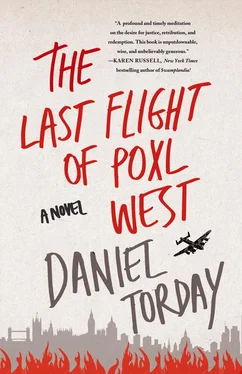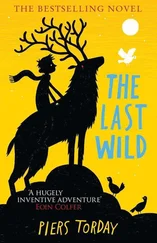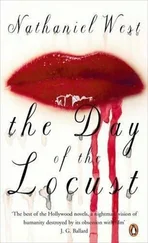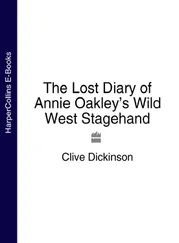I imagined the glint in his eye over a sundae we would share later that year. I knew even if I chided him, nothing would sway Uncle Poxl’s new, implacable optimism in the wake of its publication. He’d received an advance against future royalties, and notice in the paper of record.
Now my Uncle Poxl was a writer.
Before the ink had dried on the newsprint in the Times, Poxl had moved out of his tiny apartment in Somerville and rented an apartment in Manhattan — the place was in Spanish Harlem, but it was a place in New York. Though he held no Ph.D., having been ABD for longer than I’d been conscious, he was offered an adjunct class at Columbia in the fall. He planned to take a leave from his job teaching ninth-grade English. He had syllabi to write and readings to conduct. He’d called my father one afternoon when I was at a basketball game, and I can still feel how my skin prickled with jealousy that I hadn’t been the one to answer. I could only hope and imagine he’d honed those very passages of his book on those Cabot’s trips of ours. Somehow I’d been a part of the writing of this book — I’d touched history, fame, and heroism all in one small passive reach, and though it later nudged me down my path, it gave me no solace at the time. Uncle Poxl was to be a known writer, but as a result our Brahmin cultural outings were to take a hiatus.
I wrote him a letter congratulating him and briefly bemoaning not seeing him or the Rodins at the museum for a while. He wrote back with the promise of complimentary copies of his book — which we wouldn’t receive until we saw him for his reading in Boston. Those books hadn’t arrived. I allowed myself to assume he was simply too busy to send them along, or his publisher had forgotten to fulfill his request, but my parents could see the disappointment on my face each time mail arrived without copies of his book. I tried to remember what Poxl had written, but there were so many gaps to be filled, and what is the memory of words compared with reading the pages of a book? I longed to hold the object. I wanted to see Poxl West’s name on the cover.
But what I did get was that letter. I hadn’t flown his mind entirely. It was written on stationery, at the top of which was embossed The Algonquin Hotel in red letters, the color of which matched his face.
“As soon as my tour is over,” Uncle Poxl said at the end of his handwritten note, which I still keep in a desk drawer today, “I’ll take you down to the island of Manhattn. We’ll go to the Galerie St. Etienne and I’ll show you the Schieles there — oh, the Schiele’s there! What a treat you’re in for, Elijah. You’ll come down to New York. Then you’ll really see something for once.”
Skylock:
The Memoir of a Jewish
RAF Bomber
1.
I grew up in Leitmeritz, a small Czechoslovak city forty miles north of Prague. My father owned a large leather factory called Brüder Weisberg. It was a business he ran for his family, out of filial duty and love, and if this story is to be about something, it is love, not war. And if we are to understand romantic love, we must first understand the languid, sedentary love of family.
My father was among the most well-to-do Jews in Czechoslovakia. We lived in a large house on a hill above the streets of Leitmeritz. Its long stone façades overlooked the city all the way down to the Elbe, over the tufted green hills where I played as a child and endured the bullying of instructors at a strict gymnasium. When I was young I worked at my father’s factory. I learned the trade, and on holiday accompanied him to the aerodromes, where the fortune he’d accrued allowed him the luxury of flying private aeroplanes. One day, I was to take over the factory.
Every Sunday, while my father flew his planes, my mother took me into Prague to see her mother, my grandmother. We arrived at the main train station and she walked me through Wenceslas Var, across the Charles Bridge and up to the castle mount to buy some smazeny syr before crossing the city to my grandmother’s town house. Black bulbs at the top of the cathedral stood out, imposing against the marbled sky. Walking up the cobblestone streets we passed cafés and bars where men stared at my mother’s beauty as we passed. From the top of the mount we witnessed the drone of the Vlatava pushing in its absolute grayness, bisecting Prague like some great creature finding it easier to keep watch over a city divided.
On one particular visit when I was thirteen, the city was overwhelmed by a gray damp chill. It was late October and cold enough to erase most odor from the air. Only the pungent smells of meat held the power to waft by on our walk to my grandmother’s immense town house in the Zizkov district. Cobblestones made a trail from the river, and beneath my feet I saw 2 … 4 … 16 … 132 … 17, 424 and on into infinity millions of cobblestones smudged to a variegated mix. The sky throbbed with fast-passing clouds. I walked with my arm in my mother’s until she stopped. I looked up and saw pasted to a stone wall posters drawn by the Art Nouveau painter Alphonse Mucha.
My mother stood staring.
She was an amateur painter, a habit my father supported with a complicated reluctance I could not understand. On our trips to Prague she would always divert us when my father was absent, eager to see what art she could. While she stopped, two men paused alongside us to look at these posters, as well. Green vines enwrapped the bodies and breasts of stark naked women, in their hands bunches of grapes. One of the men next to us said to the other in a shallow, informal Czech:
“Wouldn’t you like to have one just like her?”
“Flat up against a wall like that,” the other replied.
They both laughed and looked at my mother, expecting to have offended her.
She smiled at them.
She was not embarrassed by the nude women before us. The men’s lecherous leers and ugly comments did not faze her.
They looked at me, and my skin prickled.
They walked away.
I watched a change pass over my mother’s face: The skin about her eyes drew back and I saw there a kind of giddiness my father at all times looked upon with impertinent disdain.
We walked to my grandmother’s. She lived at 30 Borivojova, in a town house painted canary yellow. The components of its face were those chisel-cut rectangular stones one might find all across the city. On the front steps leading to the door sat a pair of angry lions. Inside the entranceway the air was close. Grandmother Gertrude, whom we called “Traute,” held my head to her bosom. She kissed me on my cheek and rubbed the invisible stubble over her upper lip against my nose. I longed to get away and departed for the lav, and when I reached it, I tended to myself. In the cobblestones that rose out of my memory came Mucha’s women — only overlaid by that scrim of stones, they grew even more angular. This new image seared itself across the backs of my eyelids. I felt the warmth of their painted bodies come to life under my skin.
While I was cleaning up, I heard footsteps.
I froze.
They veered off into a room nearby. As I moved toward the sitting room where I’d left my mother and grandmother, I noticed the door to a little-used room off the main dining room was open. Inside, I found my mother standing before half a dozen paintings propped along the far wall. A burlap tarpaulin that must have been used to cover them was strewn across the floor. The angular girl in the painting before my mother sat with her legs spread, her hands below her small breasts and a mossy tuft just covering her exposed pink sex.
The two paintings next to it it contained more of the same.
Читать дальше












